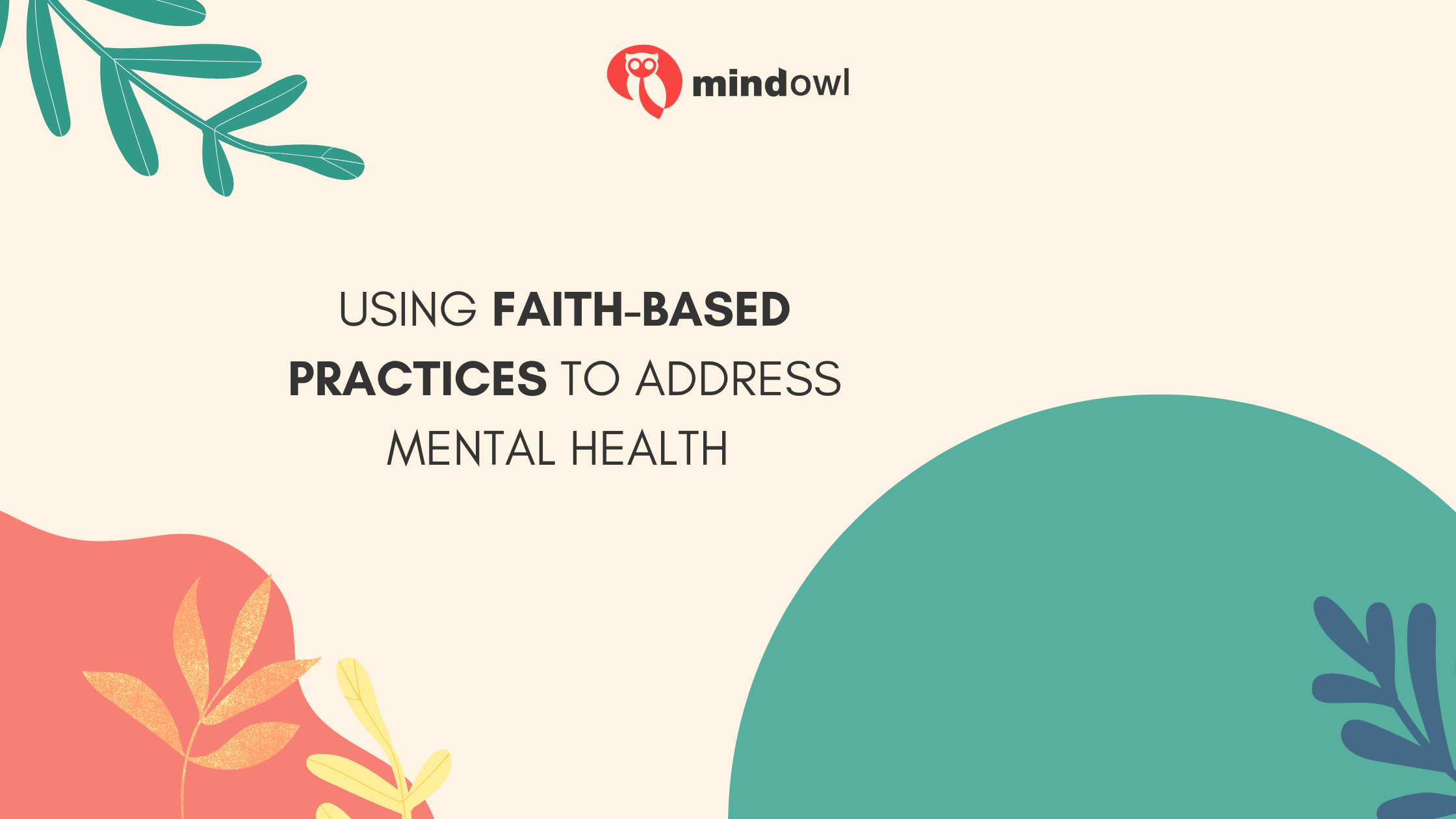Faith is powerful. No matter the worldview, the religion, ideology, philosophy, or belief, what someone believes and how they act on those mindsets can have a huge impact on their lives. The way in which people enact their faith can have profound impacts on physiology. In a world increasingly dominated by technological advancements and scientific breakthroughs, mental health and emotional well-being have emerged as crucial topics of discussion in the fields of physical and mental health.
With concerning and rising rates of anxiety, depression, and trauma-related disorders, many individuals are seeking holistic approaches to healing that transcend conventional methods. For many people, faith-based practices offer comforting and effective resources for addressing mental health challenges and overcoming emotional trauma, or just the stresses of daily life.
The following are some ways in which the use of faith-based practices may help to address mental health or overcome emotional trauma.

Understanding the Intersection of Faith and Mental Health
Faith-based practices encompass a wide range of spiritual beliefs, rituals, and community support systems rooted in religious or spiritual traditions from all over the world and founded recently or from thousands of years ago.
These practices often give individuals a sense of purpose, belonging, and hope daily or during times of great trials. Various studies have indicated that spirituality can play a positive role in mental health, contributing to improved coping mechanisms and resilience during such difficult times.
Faith can offer individuals a framework for understanding suffering and adversity that they may be experiencing either individually or collectively. Most religions often have teachings about perseverance, redemption, and healing, which can be powerful tools that allow people to grapple with emotional trials.
By integrating these principles into their lives, individuals may find solace and meaning amidst their struggles.
Key Faith-Based Practices for Mental Wellness
Prayer and Meditation
Regular prayer and meditation can foster a deeper connection to one’s faith and provide a sense of peace. These practices allow individuals to quiet their minds, reflect on their emotions, and seek divine guidance. Research suggests that mindfulness, often incorporated into spiritual meditation, can significantly reduce stress and anxiety and can even pair as an option in faith based nursing.
Scriptural Engagement
Reading and reflecting upon sacred texts can be particularly therapeutic. Verses that emphasize healing, comfort, and hope can provide encouragement and strength. Many find solace in stories of resilience found within religious narratives, inspiring them to persevere in their healing journeys. While many people who are followers of a specific religion may lean more into one book or perspective, there are many different books, authors, and ideas that can have universally applicable and helpful means by which comfort and direction may be derived.
Community Support
Humans are social creatures. Without a healthy community it can be extra hard to process feelings of stress, anxiety, despair, or grief. By engaging with a faith community people can often find an alleviation of feelings of isolation and loneliness, which are common among individuals dealing with mental health issues. Spiritual communities often provide strong support networks that encourage and facilitate friendships or social connections that can foster hope, resilience and recovery.
Rituals and Sacraments
Participating in religious rituals, such as communion, confession, or baptism, can promote a sense of belonging and renewal. These practices often create a supportive environment where individuals can process their emotions and behaviors in a safe, understanding space. Additionally, the ritual and sacred nature that accompanies religiosity tends to marry the practices of prayer, mediation, scriptural study, and community gathering.
Service and Charity
Many faith traditions emphasize the importance of serving others. Engaging in acts of kindness and charity not only helps those in need but also provides a sense of purpose and fulfillment to the giver. This shift in focus can elevate mood and reduce feelings of helplessness that often accompany anxiety and depression.
Forgiveness
This is a key tenet in many religious traditions is the concept of forgiveness for self-forgiveness and forgiving others. Letting go of past grievances can be liberating and is essential for healing emotional trauma. Faith-based practices often guide individuals in understanding forgiveness as a path to emotional freedom.
Integrating Faith with Professional Support
While faith-based practices can be a powerful complement to mental health care, it is essential to recognize the importance of professional support. Mental health professionals, including therapists and counselors, can offer evidence-based interventions that address underlying issues. Those seeking to integrate spirituality into their healing process can discuss their beliefs with their mental health providers to create a collaborative approach to treatment, and professionals can broaden their counseling networks by partnering with a variety of treatment modalities.
By leveraging spirituality, individuals can discover pathways to understanding, healing, and personal growth. Embracing these practices within a broader treatment plan, including professional mental health support, can lead to a more holistic approach to recovery.
MindOwl Founder – My own struggles in life have led me to this path of understanding the human condition. I graduated with a bachelor’s degree in philosophy before completing a master’s degree in psychology at Regent’s University London. I then completed a postgraduate diploma in philosophical counselling before being trained in ACT (Acceptance and commitment therapy).
I’ve spent the last eight years studying the encounter of meditative practices with modern psychology.

